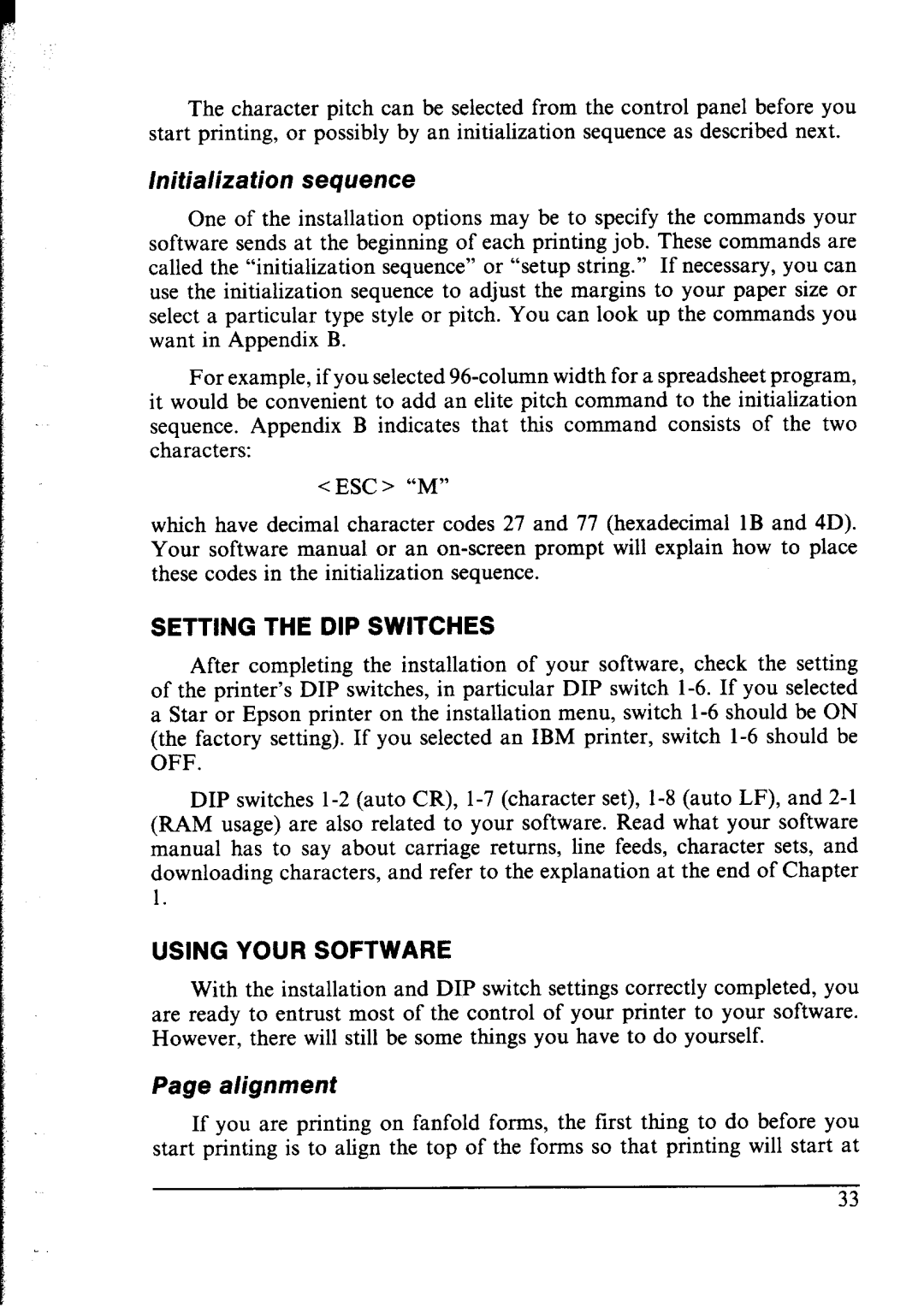
The character pitch can be selected from the control panel before you start printing, or possibly by an initialization sequence as described next.
initialization sequence
One of the installation options may be to specify the commands your software sends at the beginning of each printing job. These commands are called the “initialization sequence” or “setup string.” If necessary, you can use the initialization sequence to adjust the margins to your paper size or select a particular type style or pitch. You can look up the commands you want in Appendix B.
For example, if you selected
< ESC > “M”
which have decimal character codes 27 and 77 (hexadecimal 1B and 4D). Your software manual or an
SETTING THE DIP SWITCHES
After completing the installation of your software, check the setting of the printer’s DIP switches, in particular DIP switch
DIP switches
USING YOUR SOFTWARE
With the installation and DIP switch settings correctly completed, you are ready to entrust most of the control of your printer to your software. However, there will still be some things you have to do yourself.
Page alignment
If you are printing on fanfold forms, the first thing to do before you start printing is to align the top of the forms so that printing will start at
